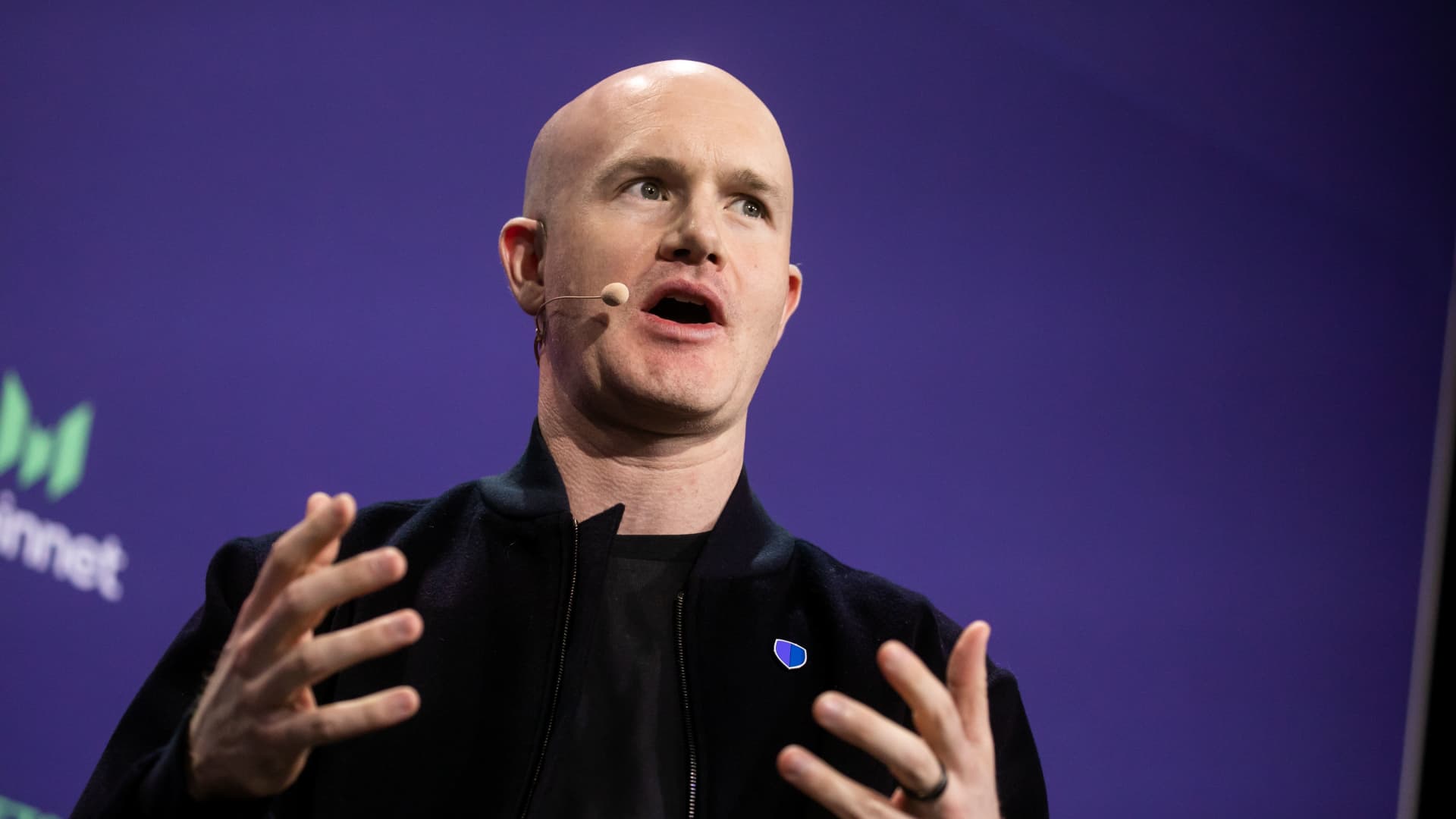JPMorgan Chase is feeling optimistic about the stock market despite recent dips, and sees limited downside for the crypto markets in the near term, according to analysts at the firm. Additionally, JPMorgan analysts are bullish on stocks such as Telephone & Data Systems and HilleVax.
Coinbase CEO Brian Armstrong discusses the company's base layer 2 blockchain network, interest in flatcoin, and the need for regulatory clarity in the crypto industry, suggesting that the courts, congress, and the CFTC could provide clarity and that there could be a new SEC chair in 2024.
The lack of clear crypto regulations in the US has caused significant issues for the industry, leading to collapses and a weakening of America's position as a financial hub, according to Coinbase CEO Brian Armstrong. He emphasizes the need for clear rules that recognize the innovation potential of the technology while protecting consumers. Armstrong also highlights the potential benefits of Bitcoin exchange-traded funds (ETFs) and Coinbase's role as custodian in many ETF applications.
U.S. Securities and Exchange Commission Chair Gary Gensler continues to emphasize the importance of crypto companies complying with securities laws, despite recent setbacks in court cases against the industry. Gensler will discuss recent enforcement actions and proposals related to cryptocurrency firms but will avoid discussing ongoing litigation, including high-profile cases against Coinbase and Binance.
JPMorgan Chase CEO Jamie Dimon criticizes stricter capital rules proposed by U.S. regulators, warning that they could impede economic growth and decrease lender investment.
U.S. bank groups, including JPMorgan Chase, Goldman Sachs, Morgan Stanley, and Citigroup, have accused the Federal Reserve and other regulators of violating federal laws with a proposal to raise capital requirements, arguing that it lacks sufficient public data and analysis.
Coinbase CEO Brian Armstrong urges the U.S. CFTC to avoid enforcement actions against decentralized finance (DeFi) protocols, stating that they should be resolved in court to set a precedent.
Coinbase CEO Brian Armstrong advocates for decentralized finance (DeFi) protocols and suggests legal action to establish a legal precedent, while MakerDAO's founder believes decentralized stablecoins could dominate the crypto market, and Polygon CEO acknowledges the success of their $1 billion investment in zero-knowledge proof rollups. Additionally, market surveillance firm Solidus Labs reveals that decentralized exchanges have become a hotspot for wash trading, and a DeFi advocacy group petitions to stop a patent troll from targeting DeFi protocols. Despite a mixed week for the top 100 DeFi tokens, the total value locked into DeFi protocols remains above $49 billion.
Coinbase CEO Brian Armstrong believes that the crypto industry needs to enhance its lobbying efforts before the 2024 elections in order to address the unfair regulatory environment faced by US-based crypto firms.
Chase is banning crypto-linked payments for U.K. clients starting Oct. 16 due to concerns about fraud and is urging customers to use alternative banking services to invest in cryptocurrencies.
Chase UK, the British challenger bank brand of JPMorgan, has prohibited customers from purchasing cryptocurrency starting October 16, citing the increasing use of crypto assets by fraudsters to steal money from people.
The U.S. Securities and Exchange Commission (SEC) has asked a judge to reject Coinbase Global's request to dismiss the regulator's lawsuit against the cryptocurrency exchange, arguing that a recent court ruling used by Coinbase in its defense does not apply in this case.
JPMorgan executes its first live blockchain-based collateral settlement transaction using its Ethereum-based Onyx blockchain and Tokenized Collateral Network, Coinbase's legal fight over the status of crypto faces new challenges, and a former CEO testifies against FTX's founder in a fraud case.
Coinbase, the largest US crypto exchange, argues that a proposed IRS rule to define crypto brokers and regulate tax payments will threaten the industry and invade Americans' privacy.
Coinbase is demanding immediate action from the Securities and Exchange Commission (SEC) or for the courts to intervene on its request for formal rules on digital assets as securities. Despite a previous delay, Coinbase accuses the SEC of refusing to act on its petition, leaving digital assets in a difficult situation with no clear guidelines.
Coinbase's Chief Legal Officer, Paul Grewal, opposes the Treasury's proposed regulations for tax reporting of digital assets, warning that it could harm fairness and innovation in the industry and potentially pose privacy concerns.
Coinbase will present its final arguments to a judge, asserting that the SEC lacks evidence to show that its transactions were unregistered securities and that the agency's regulation of the crypto industry violates the "major questions doctrine." The outcome of the case could have significant implications for the future of digital assets in the US.
Cryptocurrency exchange Coinbase has argued in a legal brief that tokens are not securities and that the Securities and Exchange Commission (SEC) has exceeded its regulatory authority, as it seeks to have a lawsuit from the SEC dismissed. Coinbase contends that tokens traded on its platform do not meet the criteria for "investment contracts" and that the SEC is violating the Major Questions Doctrine. The outcome of the case will determine whether certain cryptocurrencies are considered securities and whether Coinbase failed to register with the SEC.
